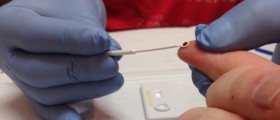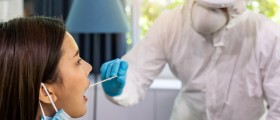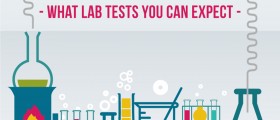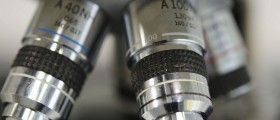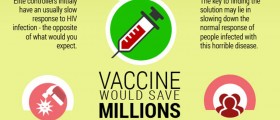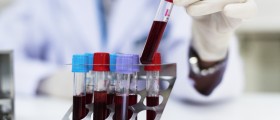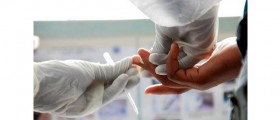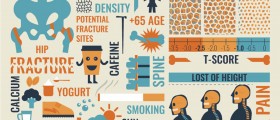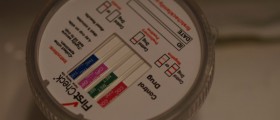Recently had standard blood test screening for work reasons and the initial test came back 'reactive' for HIV. They could neither confirm a positive or negative result but said they need to retest it in case of contamination. The second (same) test came back again 'reactive', that there was some degree of positive reaction. On the report, the test conducted was a 'HIV I & II Ab/ p24 Ag screen' and they classed it as 'inconclusive' on the paper work.
Further confirmatory tests followed which came back:
- Vidas test - positive
- Geenius test - negative
- Determinant - positive
The consultant could not give me any more information than this and said it could be seen as an 'equivocal' result and advised to go through the NHS route and get GP referral to seek specialist advice and more tests.
However, as explained to the previous people, I have only ever had one sexual partner many years ago (who to my knowledge was a virgin as was I at the time) and we engaged in some unprotected sex as I was on the OCP, together for 3 years. I have never injected drugs. I have never had a blood transfusion. I did however have 2 sharps injuries (over a year ago) in a histology laboratory on a microtome which deals with many samples that have already been fixed in formalin and processed into wax blocks, so the chance of contracting anything from these samples in their nature is low, and I did bleed my finger both times for >15 minutes under cold running water. I did not have any sharps injury follow ups at the place of work as I was assured they happen all the time.
I had all of my covid vaccines and boosters and Hep B and flu vaccines over the past two years, maybe there was a contaminated needle?
I have no underlying health conditions. I have never had any HIV symptoms or frequent illness. I had a full bloods check up last month and they were all fine, WCC normal.
What do you make these tests and results? Is this a positive HIV diagnosis?
If I had contracted something from my partner or the sharps injuries, my results would be a clear positive surely if the virus had replicated over the years. Is there any other explanation for these results?
Loading...
Hi, guest.
About your tests:
- HIV I & II Ab/ p24 Ag Screen: This test looks for both antibodies to HIV and the p24 antigen, which is part of the virus itself. It's very sensitive and can sometimes yield false positive results, especially in low-prevalence populations.
- Vidas Test: This is another type of HIV test, usually an enzyme-linked immunosorbent assay (ELISA) test, which also looks for antibodies.
- Geenius Test: This is a confirmatory test used to confirm the presence of HIV antibodies and differentiate between HIV-1 and HIV-2.
- Determinant Test: The specifics of this test are unclear, but it seems to be another form of HIV testing.
Your results are not straightforward, with some tests indicating a positive result and others negative. This can happen for various reasons, including technical issues with the test, early infection (when the body hasn't produced enough antibodies yet), or other factors that might interfere with the test.
Given your described low-risk profile, it's understandable that these results would be surprising and concerning. Sharp injuries in a lab, especially with processed samples, typically carry a very low risk of HIV transmission. Similarly, the likelihood of getting HIV from a contaminated needle during vaccinations is extremely low due to stringent medical standards and practices.
Next Steps:
- Further Testing: Your consultant's advice to seek further testing through the NHS is sound. Additional, more specific tests may be required to clarify your HIV status.
- Consultation with a Specialist: An infectious disease specialist or a physician experienced in HIV care can provide more detailed information and guidance based on your specific circumstances.
There can be other reasons for equivocal results, such as cross-reactivity with other proteins or antibodies in your blood, recent vaccinations, or lab errors. Only further testing and evaluation can provide clarity.
Remember, HIV testing has greatly improved over the years, but no test is perfect. Inconclusive results, while rare, can occur, and it's crucial to follow up with further testing and consultation with healthcare professionals to get a definitive answer.
Loading...


